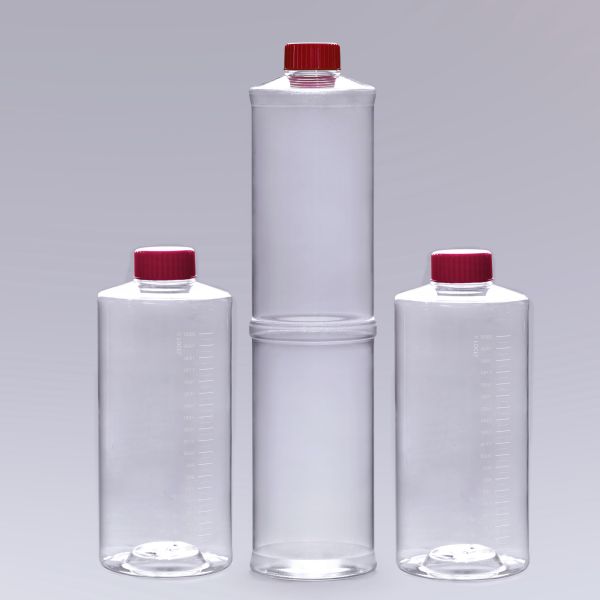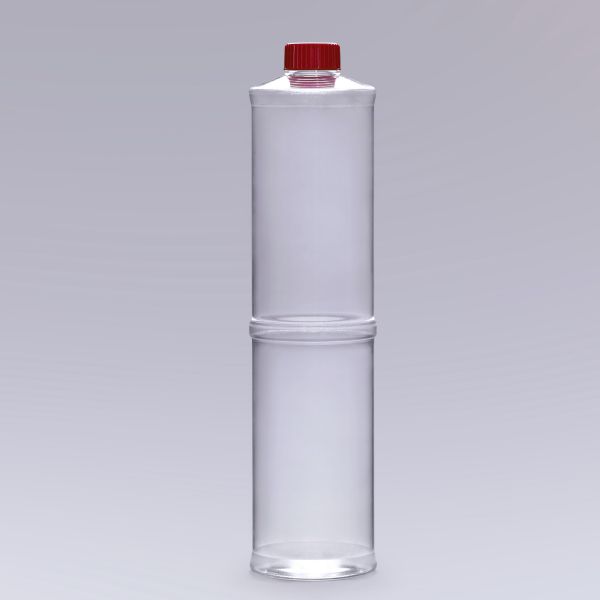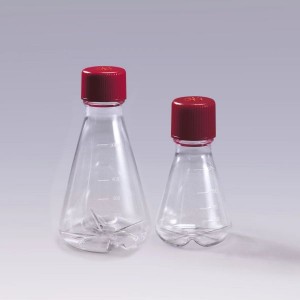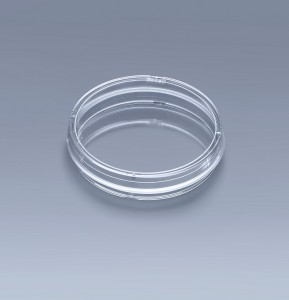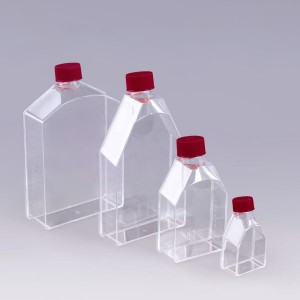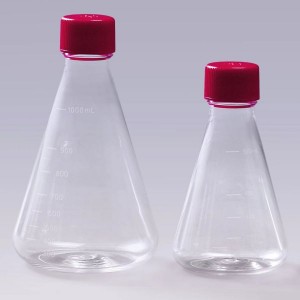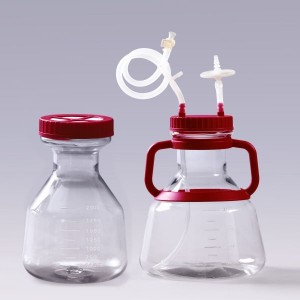2L&5L Cell Culture Roller Bottles
● Product features
01 USP Vl grade medical transparent polystyrene (PS) material.
02 Vacuum plasma surface treatment technology, enhance cell adhesion ability,can also be coated with collagen on the inner surface according to customer requirements.
03 cGMP standard production, each batch pass the performance test.
04 Sterile, no endotoxin, no heat source, no cytotoxicity.
05 ISB molding process, the bottle mouth is smooth and round, the contact sealing with the cap is better, and the product residue is less.
06 5L roller bottle adopts two-stage design to increase the contact area. The contact area between the roller bottle and the roller bottle machine adopts the frosted structure to increase the friction coefficient of the roller bottle and reduce the sliding phenomenon.
07 Uniform thickness, no distortion at the bottom, more endurance to rotation.
08 Thick stripes on the screw cap make it easy to screw in and out.
Irradiation sterilization.
No DNase, RNase, no pyrogen, no endotoxin.
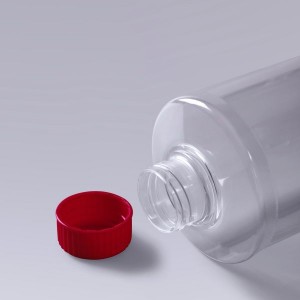
Several common contaminations during cell culture in spinner flasks
Contaminated cells are often encountered during cell culture. Several common contaminations are as follows:
1. Bacterial contamination
Bacteria are black and fine sand-like under an ordinary inverted microscope. Depending on the infected bacteria, they can have different shapes. The culture medium is generally cloudy and yellow, which has a significant impact on cell growth. Most of the cells die within 24 hours.
2. Mold contamination
The culture medium in the cell spinner flask is clear and free of impurities under an inverted microscope. After 2-3 days of incubation in a 37-degree incubator, it is still clear, but there are flocculent impurities. The cells can still grow when visible hyphae are seen, but the viability of the cells deteriorates over time.
3. Virus contamination
Virus contamination is not easy to detect. There were no significant changes in cells and culture medium. The virus is also not visible under an inverted microscope. Most viruses have little effect on cell growth, and some foreign viruses can cause cell mutation and transformation. Virus contamination can interfere with the infection and yield of the desired virus.
4. Mycoplasma contamination
Mycoplasma are not visible under an inverted microscope. Early pollution, the culture medium is not turbid. Later contamination will cause discoloration of the medium, inhibition of cell growth, cell clumping, small particles under the microscope or even death.
When culturing cells in a spinning flask, attention should be paid to the sterility during the operation. The operator should do his own disinfection work to prevent the breeding of various pollution sources and affect the cell culture process.
● Product Parameter
TC Treated Cell Roller Bottles 2L&5L
| ltem No. | Size | Culture area(cm2) | Cap | Sterile | pcs/
pack |
pcs/case |
| LR022002 | 2 | 850 | Seal cap | Yes | 2 | 40 |
| LR022005 | 5 | 1750 | Seal cap | Yes | 1 | 20 |
Non-TC Treated Cell Roller Bottles 2L&5L
| ltem No. | Size | Woking volume(ml) | Cap | Sterile | pcs/
pack |
pcs/case |
| LR020002 | 2 | - | Seal cap | Yes | 2 | 40 |
| LR020005 | 5 | - | Seal cap | Yes | 1 | 20 |


